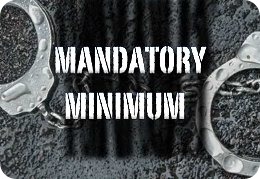In a recent guest editorial contrast, Joshua Marquis, Clatsop County District Attorney, presented a highly vindictive view of justice.
Marquis is most famous as Oregon’s most extreme proponent of the death penalty. His well known support for Measure 11 is also self-serving, because it gives him, as a prosecutor, more power over sentencing than the judge, because he decides whom he will prosecute under Measure 11, and whom he will prosecute under reduced charges. I found his deceptive attacks on several fine organizations particularly offensive.
Paul Solomon, Director of Partnership for Safety and Justice, and Ron Chase, Director of Sponsors, responded to it, presenting a far more enlightened restorative view of justice.
 The July 4 guest viewpoint by Josh Marquis, “In advocating for the inmates, let’s not forget about the crime,” requires a response.
The July 4 guest viewpoint by Josh Marquis, “In advocating for the inmates, let’s not forget about the crime,” requires a response.
We believe that people should be held accountable for their actions. We have worked with people in the criminal justice system for more than 30 years combined, and anecdotally can tell you that the vast majority of the people we have worked with do not forget about the crime that they committed. Even if they wanted to forget, criminal background checks for employment and housing, offender registration laws and supervision requirements make it very difficult for people to lose sight of their criminal histories and create myriad barriers to successful re-entry.
Marquis would have us believe that organizations such as the Partnership for Safety and Justice, Sponsors, Citizens United for Rehabilitation of Errants, and Better People are swimming in money and have no concern for the suffering and trauma experienced by many crime victims. Nothing could be further from the truth.
The groups Marquis criticizes are the very organizations that are seeking cost-effective solutions to crime that support the efforts of survivors of crime, people convicted of crime and the families of both to rebuild their lives. They advocate for the creation of policies that are less dependent on the over-reliance of incarceration — and actually make us safer.
As far as “swimming in money” is regarded, that got a good laugh. It has been a constant struggle over the years to simply keep Sponsors afloat. If Marquis would like to examine Sponsors’ budget, he is more than welcome. It should also be noted that Sponsors Inc. has never received a dime of Soros Foundation money, although we appreciate the suggestion and will look into it.
In fact, Sponsors contracts for state community corrections funds with Lane County to provide re-entry services to those being released from state prison and returning to Lane County. People in the “high-risk” (to re-offend) population served by Sponsors generally arrive homeless and indigent — and leave drug free, in compliance with release conditions, with stable employment and permanent, sustainable housing. There is no better service we can provide victims than to do our best to encourage those with criminal histories to change their ways and become productive community members.
Marquis would also have us believe that groups such as Crime Victims United and the Oregon Anti-Crime Alliance are poor, ineffective organizations “operating on a wing and a prayer.”
This analysis is misleading and disingenuous. CVU, led by Steve Doell, is a highly influential organization that has deftly and successfully lobbied for “tough on crime” sentencing enhancements and challenged any efforts to slow the growth of our state corrections system, which now ranks No. 1 in the country in the percentage of general fund dollars spent on prisons.
 Marquis also neglected to mention the Oregon Anti-Crime Alliance, staffed by Ballot Measure 11 author Kevin Mannix and former Lane County District Attorney Doug Harcleroad. Their role should not be overlooked, either. Unlike the organizations named by Marquis, Mannix and his ballot measure campaigns have been extremely well-funded, having been the beneficiary of hundreds of thousands of dollars from out-of-state millionaire Loren Parks.
Marquis also neglected to mention the Oregon Anti-Crime Alliance, staffed by Ballot Measure 11 author Kevin Mannix and former Lane County District Attorney Doug Harcleroad. Their role should not be overlooked, either. Unlike the organizations named by Marquis, Mannix and his ballot measure campaigns have been extremely well-funded, having been the beneficiary of hundreds of thousands of dollars from out-of-state millionaire Loren Parks.
Measure 11 is the biggest driver of corrections spending in the state. Mandatory minimum sentencing schemes have forced a one-size-fits-all approach to dealing with the complex issue of crime and criminality.
Marquis points to a declining crime rate as a justifier for mandatory minimums. In actuality, crime rates have been dropping in Oregon and across the country for many years.
Criminologists will tell you that incarceration is but one factor in analyzing the fluctuating rates of crime. Age and economics have as much to do with crime rates, if not more, than incarceration. Furthermore, other states have realized a drop in crime while decreasing their prison population.
In these difficult economic times we need to spend our precious state resources wisely. As the state’s corrections director has said, our current prison growth “is on an unsustainable trajectory.”
While the vindictive justice advocated by Marquis, Mannix and Doell, among others, may provide a sense of satisfaction or a false sense of security, it does little to create a system that is cost efficient and fair while holding people accountable, and it does nothing to change their behavior.
It is unfortunate that Parks doesn’t use his millions to fund evidence-based programs proven to reduce future crime. The state’s ability to fund these programs has been reduced by the mandate for prison beds, which has consumed the lion’s share of the correction’s budget…
Inserted from <The Register Guard>
I completely agree with the restorative view. Corrections has two functions. The first is to protect our communities from the predations of dangerous criminals. The second is to reform dangerous criminals into citizens who will no longer threaten our communities.
Vindictive justice does nothing to further either of those purposes. Prisoners warehoused under inhumane conditions return to society both more bitter and better educated in crime then they were when they entered prison. Since almost all prisoners eventually are released, are these the prisoners you want moving into your neighborhoods?
Restorative justice is a far better solution. Prisoners, housed under humane conditions, encouraged and provided tools with which to transform their lives are far more likely to become law-abiding citizens.
Speaking personally, I am grateful organizations like Partnership for Safety and Justice, CURE, Sponsors, and, of course, our own 7th Step Foundation for the assistance and inspiration they provided me to transform my own life when I was in prison. Never does a day pass that I do not remember my own crimes with shame and regret, but I am proud of the person I have become, maintaining my own freedom as a pro-social citizen for over eleven years since my release, volunteering in Oregon State Penitentiary and in my community, through 7th Step, to help other prisoners change and reintegrate, and co-facilitating a weekly therapy group for former prisoners. I consider myself an example of what restorative justice can do. Had I found only such attitudes as those of Mr. Marquis, I doubt I would have succeeded.
Partnership for Safety and Justice, along with crime victim advocates and criminal justice reformers from around the country, released Bridging the Divide: A new paradigm for addressing safety, crime, and victimization. This report highlights the importance of reforming our public safety system for both victims of crime and people accused of and convicted of crime. When we work for survivors of crime, as well as people who have committed crime, more individuals and communities can get safe, become healthy, and thrive. A core objective of this approach is eliminating racial disparities for victims of crime and people accused and convicted of crime.
 I am a man who is 59 years old. My name is Jack and I am an addict. I have spent the last 26 years of my life inside a prison made of steel and stone, before that I lived in a prison I carried in my mind. My low self esteem was beaten into me by the hard angry fists of my grandfather. You cant bury something awful inside yourself and then pretend its not there while you fight another war, that makes you break all of your own rules. Maybe I am simply talking about honor, I could not define it in myself, but I recognized it when I saw it in others. I was convinced that as a virtue it had little to do with being reasonable, I knew that absolutely it was as dishonorable for a man to allow himself to be used, as it was for him to use others. I have moments of memory where I slip back into an era that would always be mine, whether I wanted it or not. Where I lived a life of" NOT ENOUGH "… not good enough, not fast enough, not quiet enough, every statement punctuated with violence, I can feel myself begin to sink into a dark recess of pain and grief that will not cauterize with time. I can feel the caution lights start to flash in my head, then I know by the heated energy that rushes through my stomach and surges through my chest and rips open the sealed up places in my brain that I had forgotten or wanted to believe never existed. The hyena will have its way, just as the caution light is locked on red, you cant even have the pleasure of loathing yourself, because the metamorphosis to which you’ve committed yourself is now the only self you have. Everyone has a need for their past, sometimes it pulls harder on you than your future. I have liked the past better than the present or even the hope of the future. There have been times when I have fallen and betrayed my future with my past. The past is like a rodent that eats its way inch by inch through entrails and chews at your liver and stomach, severs tendons from organs until finally when you are alone in the dark it sits gorged and sleek inside your head, its eyes resting, its wet muzzle like a kiss, a promise whispered in the air. I have found in the rooms of recovery, a place of redemption, and a road to a bright future where hope and peace lay, a chance to be part of my own life instead of being ran over by it. There is no trap so deadly as the one we set for ourselves.
I am a man who is 59 years old. My name is Jack and I am an addict. I have spent the last 26 years of my life inside a prison made of steel and stone, before that I lived in a prison I carried in my mind. My low self esteem was beaten into me by the hard angry fists of my grandfather. You cant bury something awful inside yourself and then pretend its not there while you fight another war, that makes you break all of your own rules. Maybe I am simply talking about honor, I could not define it in myself, but I recognized it when I saw it in others. I was convinced that as a virtue it had little to do with being reasonable, I knew that absolutely it was as dishonorable for a man to allow himself to be used, as it was for him to use others. I have moments of memory where I slip back into an era that would always be mine, whether I wanted it or not. Where I lived a life of" NOT ENOUGH "… not good enough, not fast enough, not quiet enough, every statement punctuated with violence, I can feel myself begin to sink into a dark recess of pain and grief that will not cauterize with time. I can feel the caution lights start to flash in my head, then I know by the heated energy that rushes through my stomach and surges through my chest and rips open the sealed up places in my brain that I had forgotten or wanted to believe never existed. The hyena will have its way, just as the caution light is locked on red, you cant even have the pleasure of loathing yourself, because the metamorphosis to which you’ve committed yourself is now the only self you have. Everyone has a need for their past, sometimes it pulls harder on you than your future. I have liked the past better than the present or even the hope of the future. There have been times when I have fallen and betrayed my future with my past. The past is like a rodent that eats its way inch by inch through entrails and chews at your liver and stomach, severs tendons from organs until finally when you are alone in the dark it sits gorged and sleek inside your head, its eyes resting, its wet muzzle like a kiss, a promise whispered in the air. I have found in the rooms of recovery, a place of redemption, and a road to a bright future where hope and peace lay, a chance to be part of my own life instead of being ran over by it. There is no trap so deadly as the one we set for ourselves.  WILL THE fiscal collapse that has laid bare gross inequalities in the US economic system lead to meaningful reforms toward a more just society? One answer is suggested by the bursting of what might be called the “other housing bubble,’’ for these two years have also brought to crisis the three-decade-long frenzy of mass imprisonment. If there was a bailout for bankers, can there be one for inmates?
WILL THE fiscal collapse that has laid bare gross inequalities in the US economic system lead to meaningful reforms toward a more just society? One answer is suggested by the bursting of what might be called the “other housing bubble,’’ for these two years have also brought to crisis the three-decade-long frenzy of mass imprisonment. If there was a bailout for bankers, can there be one for inmates? With 2.3 million people in prison, America has the
With 2.3 million people in prison, America has the 
